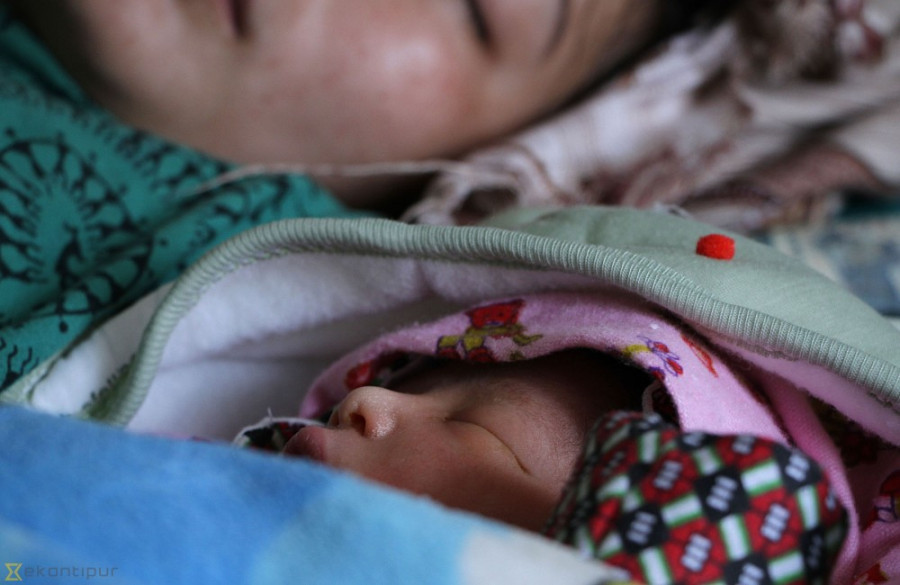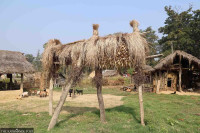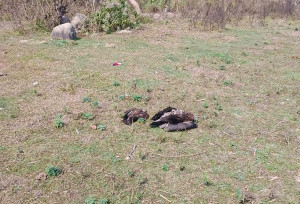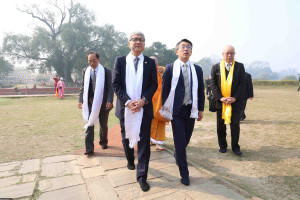Lumbini Province
Delay in hospital visits putting mothers and newborns at risk in Rupandehi
Home births have picked up in some parts of the district during the Covid-19 pandemic.
Sanju Paudel
On September 29, 20-year-old Kaushilya Yadav gave birth to her daughter at Bagaha Health Post.
Yadav, a resident of Rohini Rural Municipality Ward No. 1 in Rupandehi, was taken to the health post after prolonged labour pain since her family had decided to opt for a home birth.
“She delivered her child at the health post but both the mother and the child’s health deteriorated after the birth. The newborn needed supplemental oxygen so we referred them to Universal College of Medical Sciences in Bhairahawa,” said Shanta Gyawali, an auxiliary nurse midwife at the health post. The baby did not survive, according to family members.
“We were making arrangements for Rs 10,000 needed for the baby’s admission to the ICU. By the time we got around to it, my baby had died,” said Yadav.
Thirty-year-old Shila Yadav, a resident of Rohini Rural Municipality, gave birth to her son at home on September 2 even though the nearest health post was just five metres away from her house.
“She was brought to the health post with post-birth complications,” said Gyawali. “If there was any further delay in bringing the mother and child to the hospital, we would have lost them both.”
According to Gyawali, delay in bringing expecting mothers to health posts puts both the child and the mother at grave risks. The local health post has been raising awareness among locals about the importance of prenatal and postnatal care and the safety of institutional births, but it hasn’t stopped locals from opting for home births.
“We also provide counselling to family members of expecting mothers. We ask them to visit the health post as often as possible but not many listen,” said Gyawali.
Most pregnant women in the northern and southern parts of Rupandehi only visit health posts and hospitals when they face complications during home birth, say health officials.
Rajyalaxmi Shrestha, an auxiliary nurse midwife at Dhakdhahi Primary Health Centre in Rupandehi, says, “By the time pregnant women are brought in, it’s too late for us to be able to help them. So we have to refer them to fully facilitated hospitals. If they come to us before their health gets worse, we can help them with safe delivery.”
According to Dr Bishnu Gautam, an obstetrician at Lumbini Hospital, the locals’ preference for home births and postponing hospital visits put both mothers and their babies at risk.
“We need to sensitise the local population and raise more awareness about safe institutional delivery,” Gautam said.
“The pandemic has also affected the rate of institutional births in the district. Health posts in the northern and southern parts of Rupandehi used to receive 30 to 40 cases in a month,” said Gautam. Now, these health posts are receiving just five to 10 delivery cases, according to the data of the District Health Office in Rupandehi.
Dr Arun Kharel, the medical officer at Basantapur Primary Health Centre in Omsatiya Rural Municipality Ward No. 4, says a fewer number of pregnant women are visiting health posts for deliveries since the pandemic hit.
“Women have started to opt for home births, as they fear contracting Covid-19 when visiting health institutions. This stands to affect the infant mortality rate,” Kharel said.
Sixty-four health posts, five primary health centres and two government hospitals have been providing birthing services in the district.




 9.7°C Kathmandu
9.7°C Kathmandu















